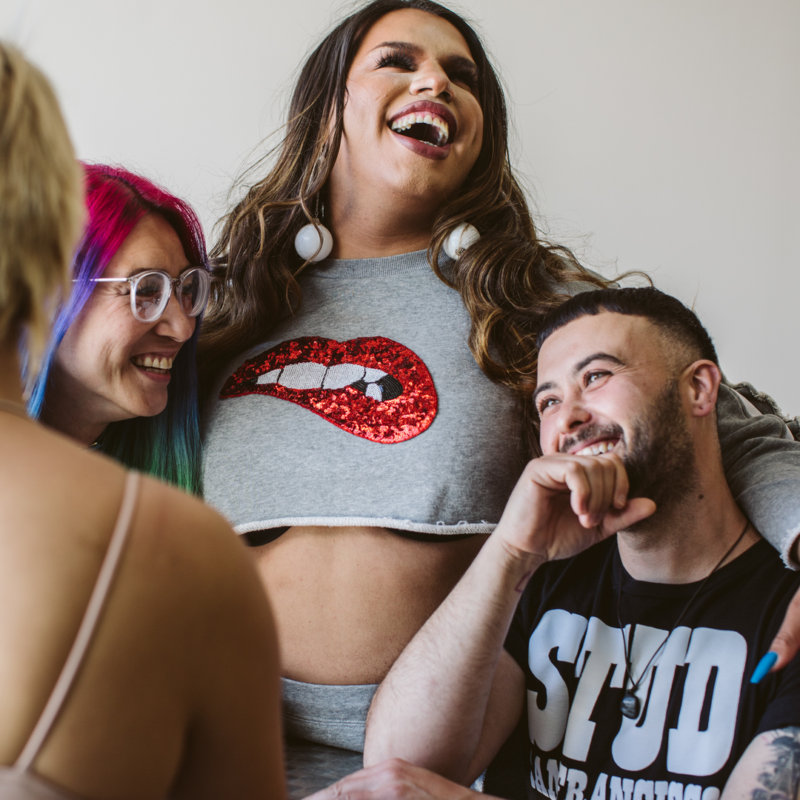Interview with Tyler TerMeer, PhD, CEO, San Francisco Aids Foundation
Pride Month is more than just an observance — it’s an opportunity to bring attention to the importance of health equity and the growing need for sexual health care. We spoke with Tyler to learn how San Francisco Aids Foundation (SFAF) is helping to build a future where health justice is achieved for all people living with or at risk for HIV.
How are you connecting more people to care in your community?
SFAF provides services, support, resources and information to communities of people living with HIV and people who may be at risk for HIV. We promote health, wellness and social justice for communities most impacted by HIV through sexual health and substance use services, advocacy and community partnerships. We also provide culturally tailored health and wellness services for various communities, including queer and trans communities.
That includes sexual health services, HIV prevention and support, substance use services, harm reduction services and communities of support for Latinx people, people over the age of 50, Black communities and trans and non-binary people. Our free programs help people in need prevent HIV with PrEP and PEP, avoid drug overdose, be cured from hepatitis C, get tested and receive treatment for sexually transmitted illnesses (STI) and HIV, receive gender-affirming care and address their substance use.
How is the community supporting the important work you’re doing?
Our communities have been an integral part of our journey since the beginning, informing the direction of our efforts and contributing to our work through volunteering, donations and advocacy. Through our HIV Advocacy Network, for example, community members participate in grassroots advocacy to fight for policies and legislation to end the HIV, STI and overdose epidemics.
Community members also participate in advisory boards and leadership councils that advise our programming and engagement with our services. And thousands of people participate in our fundraising activities — from our AIDS/LifeCycle and Dining Out for Life events to our Tribute Celebration gala. Still others contribute as volunteers for our Latino programs and our harm reduction programs.
Can you share a success story that speaks to your impact?
There are so many success stories! It’s always amazing to see and hear about clients and participants who change their relationship to substance use through our harm reduction programs. Sometimes that includes a journey to recovery, and sometimes it’s about targeted use, managed use or reducing harm. Some people are so changed and moved by their experience with our services that they pursue careers with us. We have a number of people on staff who came to us after receiving services, and they go on to help others with similar lived experiences.
Has access to treatment and care improved in San Francisco?
San Francisco faces many deficits in behavioral health care, a trend that has continued for many years. Many residents face challenges accessing services, especially those who are experiencing mental health issues, substance use and unstable housing. There is a need for more services that integrate support for substance use and mental health, additional practitioners who are trained to address these intersecting issues, culturally informed services and innovative services that reach people where they are.
What exciting things are you and your team currently working on?
A few that come to mind include expanding harm reduction services, communicating the importance of harm reduction strategies for public health, and increasing support and advocacy around harm reduction in San Francisco. We are also connecting with community members at a variety of events in spring and summer 2023. We recently held Carnaval, for example, and we are supporting Pride Month with an event. We also have the upcoming Trans March and Folsom Street Fair, among other experiences.
What can our readers do to support health justice in their communities?
Learn more and get involved! There are so many community organizations working on social, health and racial justice causes, and we all need support from community members. You can volunteer for causes you support, give financially (if you are able to), advocate for policies and laws that align with your beliefs, or write to your local, state or federal representatives to share your thoughts.
The National Council’s membership consists of health care organizations and management entities across the U.S. that offer supports to millions of adults, children and families living with mental health and substance use challenges. Learn how to become a National Council member today!




